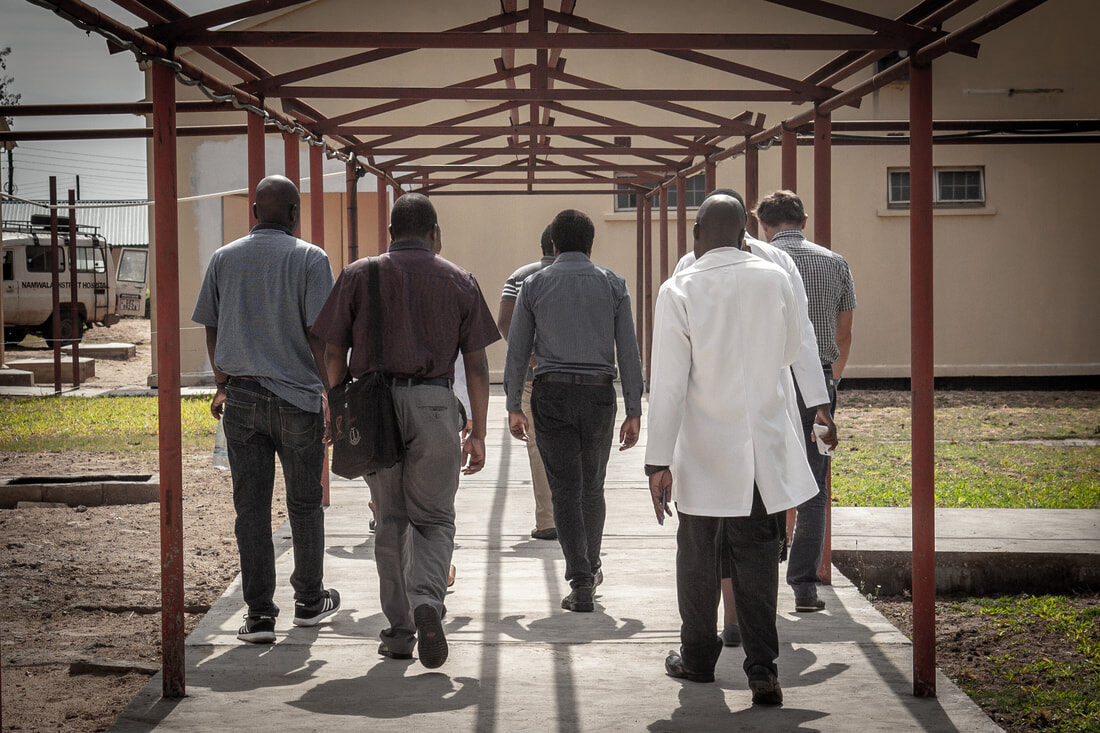Main content
Leon Bijlmakers served as editor-in-chief for five years, from 2015 to 2020.
Looking back at the history of MTb, of which the first edition was published in 1993, one might become a little nostalgic. With more than 120 editions, spread over more than 30 volumes, I’d like to believe that Medicus Tropicus bulletin, later dubbed MTb, has served as a platform bridging a certain divide between health practitioners, researchers and policy makers. One of the most nagging recurring questions for the MTb editorial board was: who reads the articles that we publish and do they meet the needs of our readership? The willingness among many NVTG members and even professionals who were not members of NVTG to contribute articles for publication in MTb strengthened us in our belief that there was actually a need to be met. Even when it gradually became more difficult for to us to persuade potential authors to make a contribution in the form of a Research paper, Study review, Project brief, Guest editorial, Opinion letter, ‘Letter from the tropics’ or Book review, we kept thinking that global health professionals had many competing priorities that prevented them from writing, but not from reading. We were lucky that the working group TROIE (in Dutch: Vereniging voor Artsen Internationale Gezondheidszorg en Tropengeneeskunde in opleiding – www.troie.nl) never failed to contribute a case report in the section ‘Consult Online’. And several of the Editorial Board members took on the responsibility to contribute Interview reports on a regular basis, or Book reviews that we deemed interesting for MTb readers.
Delivering a complete edition of usually 20 or 24 pages (occasionally 16 or 28 pages), was quite an undertaking. In three ways, MTb distinguished itself from scientific journals. First, we have always been a semi-scientific journal, never aiming to become a scientific indexed journal or pursuing an impact factor. However, we did experience competition to the extent that authors affiliated with academic institutions sometimes preferred to publish in medical or public health journals – most likely for reasons of prestige and/or pressure from funding agencies. Second, we rarely received articles at the authors’ own initiative. Usually it was us, editorial board members, who identified candidate authors and then invited them to publish in MTb. Suffice to say that the acceptance rate was not always very high, and we sometimes doubted if we would manage to obtain sufficient publishable material and meet our own deadlines. Third, instead of engaging external experts for independent review of the submitted manuscripts, the Editorial board members themselves took care of the peer review process. In some cases, this involved a pretty intensive trajectory, as experienced clinical or global health practitioners are not necessarily good writers, as I argued in an interview published in MTb 2021/4. [1] Praise is therefore due to my predecessors, successors and fellow editorial board members who dedicated much time and effort to keeping MTb alive and thriving for such a long time. I also acknowledge the contributions of the language editor(s), designer (a long-term partner-in-crime), photographer (another such long-term partner), NVTG secretarial officers, and the NVTG board members (including the treasurer!). I have appreciated their commitment and flexibility.
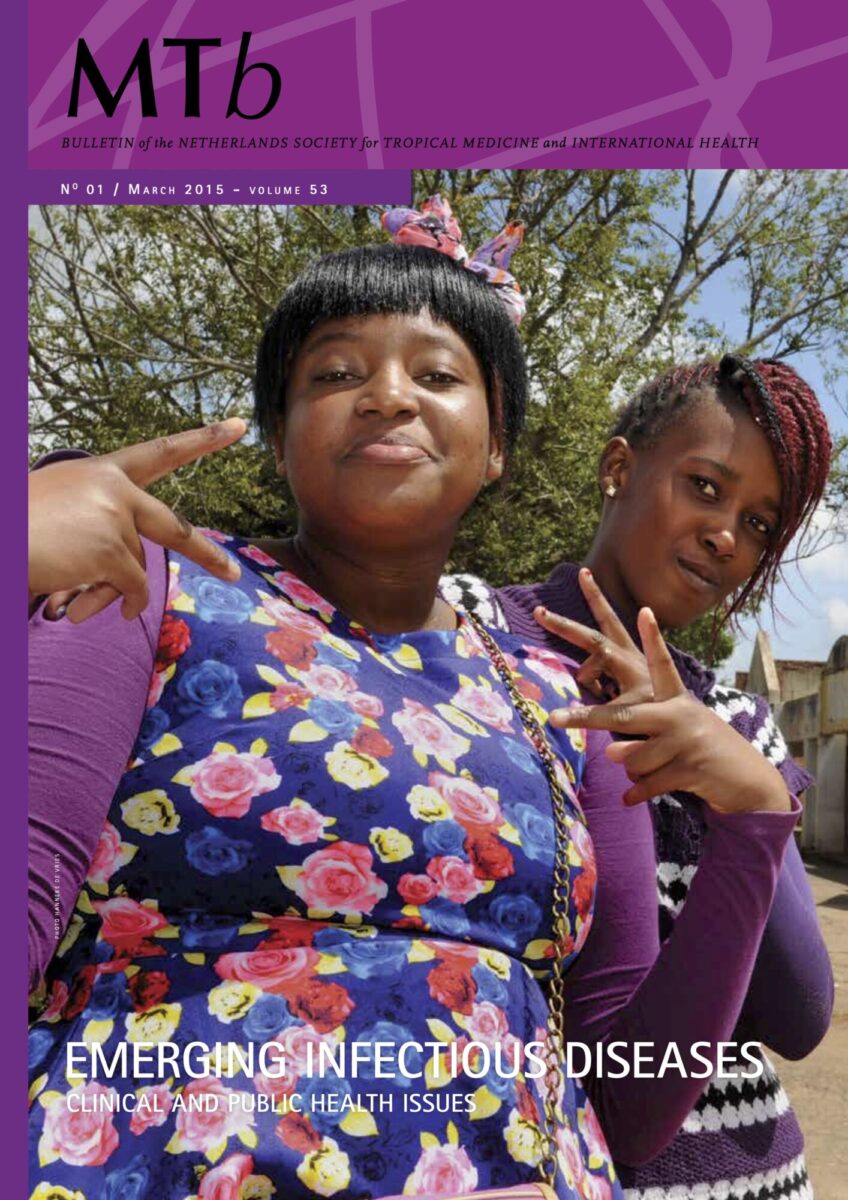

In retrospect, having served as editor-in-chief has helped me personally in executing my duties since 2020 as editor of the European journal Tropical Medicine and International Health (TMIH). Let me now turn the page on nostalgia, which in my view is a somewhat tricky indulgence, especially for a society like NVTG – in 2025 renamed the Netherlands Society for Global Health – with its rich history spanning nearly 120 years. With the ever-changing global burden of disease patterns and persisting health inequities within and between countries – despite high promises of new health technologies, we cannot afford to dwell for too long on past achievements and memories.
Global health is everywhere, not only because public health threats easily spread across country borders and ethnocultural divides, but also because the demand for and supply of healthcare have become increasingly globalised. This is worrying, but it also presents opportunities for more meaningful intercountry collaboration to achieve common goals, and for worldwide expressions of solidarity and mutual respect. I would like to expand a bit on three aspects of my work as senior researcher at the IQ Health Science Department of Radboud University Medical Center (Radboudumc) – https://www.iqhealth.nl/over-ons.
1
One of the positive side-effects of the COVID-19 pandemic, in my view, has been the gradual recognition in the Netherlands and other high-income settings that there is a limit to what healthcare interventions can achieve, and that tough choices are sometimes required in allocating scarce resources. Many people have high expectations from innovations, but we cannot simply assume that there are technological solutions for any kind of health challenge. Even high-income countries face resource constraints, be it in terms of health budget, human resources or otherwise. Back in 2017, our Global Health Priorities (GHP) research group at Radboudumc organised the citizen forum ‘Keuzes in de Zorg’ (Making tough choices in healthcare) which explored citizens’ views in the Netherlands on, and support for, reimbursement of various types of healthcare interventions under standard health insurance. Based on in-depth deliberation around six cases and interactions with experts, we demonstrated that informed citizens are willing, and to a certain extent able, to make reasoned choices about the cost coverage of health services through public funding. They realise that choices are both necessary and possible. [2]
More recently, in Oct/Nov 2024, we organised another citizen forum, this time on the reimbursement of expensive medicines. At the request of the MAUG (Socially Affordable Costs of Medications) programme (in Dutch: Maatschappelijk Aanvaardbare Uitgaven Geneesmiddelen – www.maug.nl), executed by three national institutes in collaboration with the Ministry of Health, Welfare & Sports, we explored people’s preferences and willingness to pay for forms of expensive medication, some of which have a very high budget impact, for a range of medical conditions. Our report and a 4-page Citizens’ opinion titled “Niet tegen elke prijs” (Not at any price) will soon be made available in the public domain. The aim of MAUG is to inform a national framework for the establishment of prices and expenditure levels that Dutch society deems acceptable.
2
Much of the work of our GHP research group at Radboudumc centres around the universal health coverage (UHC) concept, a term introduced by the World Health Organisation more than two decades ago and adopted by many countries as a national aspiration. UHC means that all people have access to the full range of quality health services they need, when and where they need them, without financial hardship. Ideally, it covers the full continuum of essential health services, from health promotion to prevention, treatment, rehabilitation and palliative care. [3] The goals of UHC are typically defined by three dimensions: the health services covered by pooled funds, the target population that is actually covered, and the proportion of direct health costs covered by those funds (versus patients’ out-of-pocket expenditure). Our GHP group is part of several global networks (e.g. Health technology Assessment International, HTAi, https://htai.org/, the International Decision Support Initiative, iDSI https://www.cgdev.org/topics/priority-setting). We advise government agencies in several countries and jointly undertake research on the composition and/or revision of their national health benefit packages, the institutionalisation of health technology assessment (HTA), and the institutionalisation of periodic health benefit package revision. Our advice involves not so much the content of those packages and the extent to which they are covered through social health insurance – both of which are national prerogatives – but rather the process through which benefit package recommendations, based on which the relevant authorities make their decisions, are developed. We put much emphasis on using a systematic approach, which we dubbed ‘evidence-informed deliberative processes’ (EDP). Stakeholder deliberation, legitimacy, fairness and transparency are key to EDPs. See for example this short video animation:
The use of evidence-informed deliberative processes (EDPs) – By research group Global health economics – Radboudumc (or https://www.radboudumc.nl/en/research/research-groups/global-health-economics/edps) and
Making Explicit Choices on the Path to UHC: Guide for Health Benefits Package Revision | Joint Learning Network (or https://www.jointlearningnetwork.org/wp-content/uploads/2022/12/Making-Explicit-choices.v4.pdf)
3
Among the global health research projects to which I contributed in my academic career are COST-Africa and SURG-Africa. See https://www.surgafrica.eu. Led by the Royal College of Surgeons in Ireland, these two EU-funded projects aimed to strengthen surgical systems that deliver safe, affordable and sustainable essential surgical services to rural populations in Malawi, Zambia and Tanzania. In collaboration with research institutes and surgical societies in these three countries, our consortium was quite productive in terms of journal publications and dissemination of policy options to national decision-makers. Our surgical systems research, rooted in health districts and district hospitals, which are the first point of surgical care for rural communities, have informed national scale-up plans to make safe emergency and elective surgery more accessible and affordable. [4] The application of insights, however, and the proper use of lessons learned that actually strengthen local surgical systems is less evident in my view, and this is not just a matter of resource limitations. [5]
Meanwhile, there has been a growing awareness, internationally but also in the Netherlands, of the need to address sustainability issues in the delivery of healthcare. This arises from an increased understanding of the societal and public health consequences of the way in which healthcare is provided. Research has suggested, for example, that the climate footprint of the healthcare sector accounts for 4.4% of global net greenhouse gas emissions, with much higher per capita emissions in the ‘global North’, placing a disproportionate burden of the consequences on the ‘global South’. Surgical practices generate a relatively large share of these emissions (estimated at 20-33%), part of which can be attributed to the use of disposable instruments, volatile anaesthetic gases, and pharmaceutical residues. [6] Waste reduction is considered a pivotal strategy to combat climate change, and several initiatives have sprung up to study and respond to the challenges at hand. The NWO-funded CAREFREE project, led by Maastricht University Medical Center, is one such initiative in the Netherlands. Started in January 2024, the project brings together practitioners and researchers from a range of disciplines and organisations. A short animation illustrates this nicely: https://www.youtube.com/watch?v=rqvzI68KnjU. The first publication involved a systematic review of the environmental, economic and clinical impacts of endoscopic surgical instrumentation. [6] Whereas it underscores the environmental benefits of reusables, and favours both reusable and reprocessed disposables for their economic advantages, it found insufficient evidence to warrant favouring one type over the other in instrument performance. I consider it a privilege to contribute multi-criteria decision analysis (MCDA) expertise to the CAREFREE project. It is expected to help research teams to undertake the necessary empirical evidence collection, and to eventually support clinicians, hospital managers and policy makers with priority setting and decision making in the field of surgery.
What the above three aspects have in common is that they illustrate how the triad of Health practice, Policy, and Research can be connected through systems thinking and implementation science. For deeper reflections on this, see for example Kwamie et al. and List et al. [7, 8] The cross-fertilisation of experiences from different contexts – encompassing high-, middle- and low-income countries – and engaging in teaching students and undertaking research with a view to addressing issues and concerns that are of global interest, is something that I find inspiring and rewarding. During the fifteen years that I was active internationally as a health systems consultant/advisor, after having lived and worked abroad in three different low-income countries, I did not succeed in really combining my work abroad with a professional role in the Netherlands. My transfer from consultancy to academia (in 2012) was not easy initially, but in hindsight, I believe that I managed to assume a role that satisfies my ambition to make a meaningful contribution to global health through teaching and research.
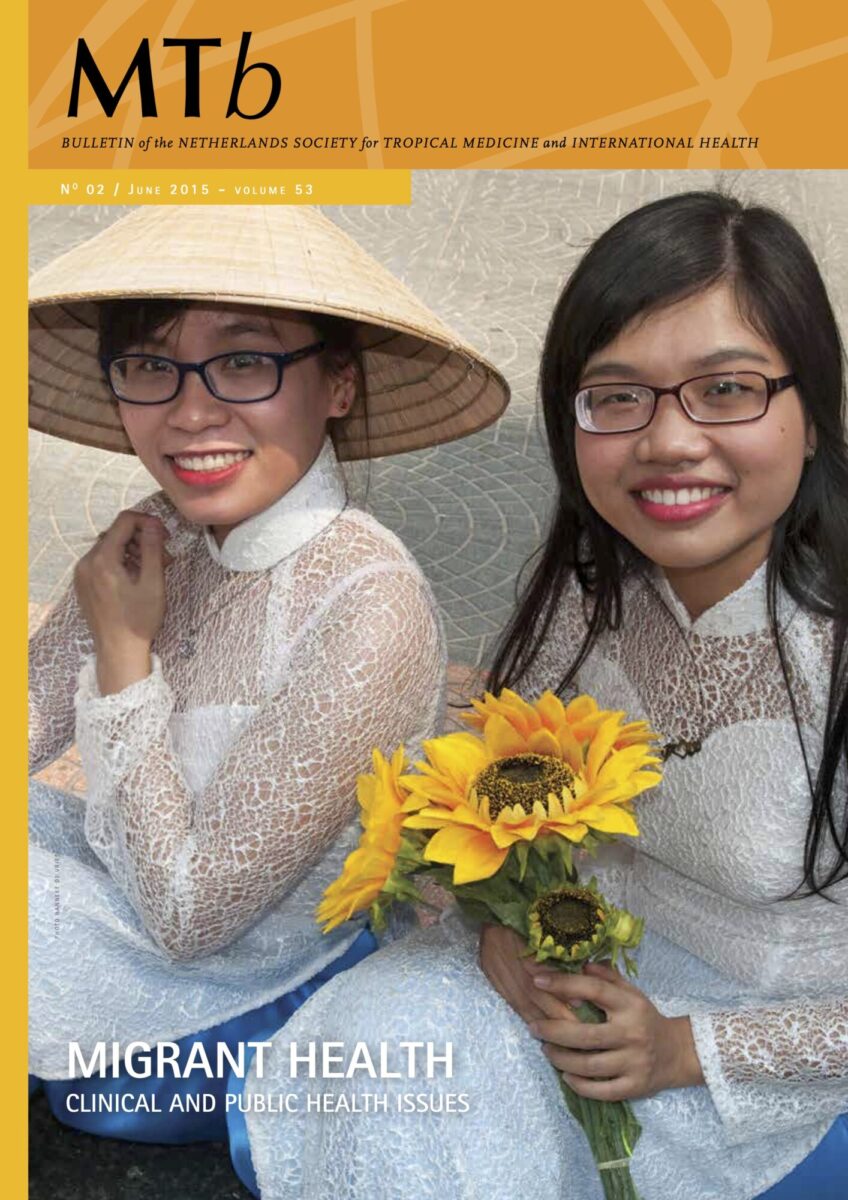
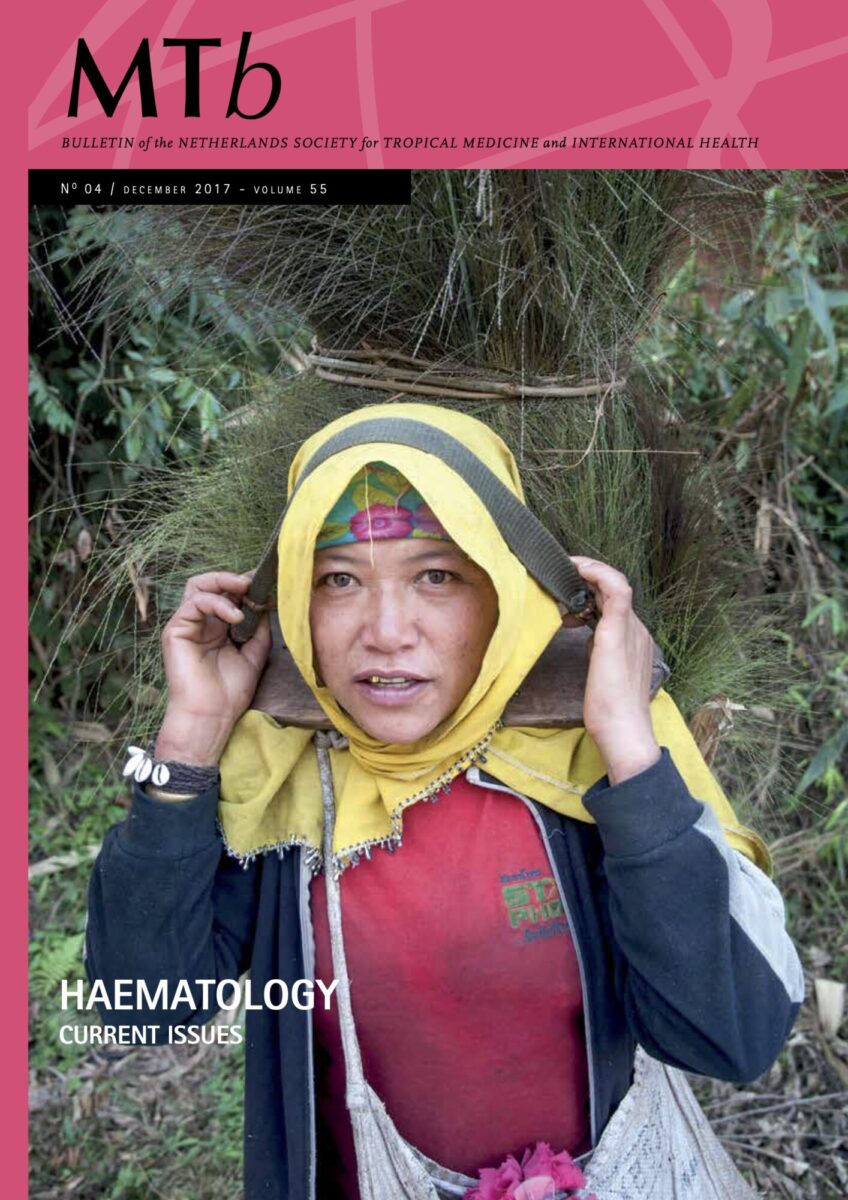
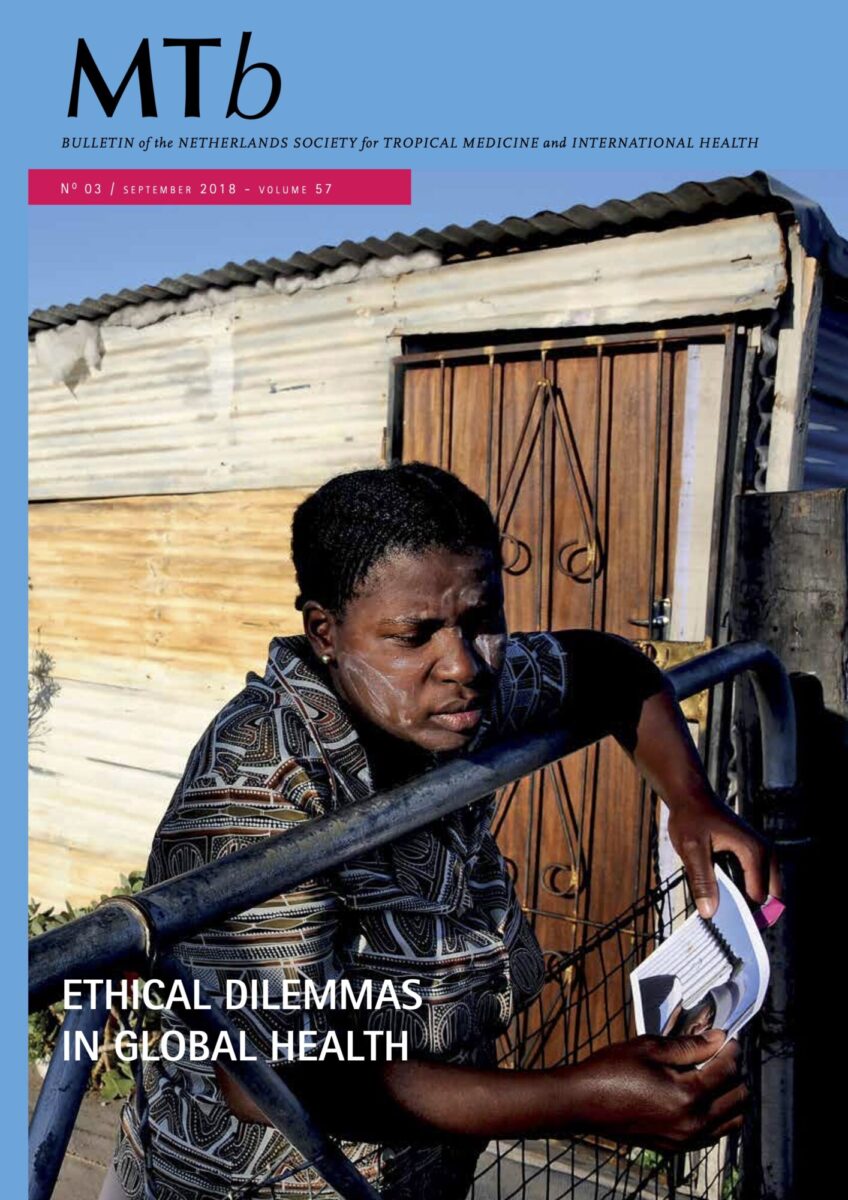
References
- Knaven, O. Reflections on MTb: an interview with Leon Bijlmakers. MTb 59(4), Dec 2021:22-23. https://cphp-berlin.de/wp-content/uploads/2022/10/2021-mt-climatechangemakersinhealth.pdf
- Bijlmakers L, Baltussen R, Jansen M, Boer B, van Dijk W, Groenewoud S, Zwaap J, Helderman JK, van Exel J. Increasing the legitimacy of tough choices in health care reimbursement: approach and results of a citizen forum in The Netherlands. Value in Health 2020; 23(1):32-38. https://doi.org/10.1016/j.jval.2019.07.015
- WHO. The World Health Report 2010 – Health systems financing: the path to universal coverage. Geneva: World Health Organization, 2010. https://www.who.int/publications/i/item/9789241564021
- Gajewski J, Bijlmakers L, Brugha R. Global surgery – Informing national strategies for scaling up surgery in Sub-Saharan Africa (editorial). Int J Health Policy Manag. 2018;7(6):481-84. https://doi.org/10.15171/ijhpm.2018.27
- Broekhuizen H, Ifeanyichi M, Cheelo M, Drury G, Pittalis C, Rouwette E, Mbambiko M, Kachimba J, Brugha R, Gajewski J, Bijlmakers L. Options for surgical mentoring: lessons from Zambia based on stakeholder consultation and systems science. PLoS ONE 2021;16(9):e0257597. https://doi.org/10.1371/journal.pone.0257597
- Eussen MMM, Moossdorff M, Wellens LM, Reuver PR de, Stobernack T, Bijlmakers L, Kimman ML, Bouvy ND. Beyond single-use: a systematic review of environmental, economic and clinical impacts of endoscopic surgical instrumentation. Int J Surg. 2024;110(12):8136-50. https://doi.org/10.1097/JS9.0000000000002141
- Kwamie A, Causevic S, Tomson G, et al. Prepared for the polycrisis? The need for complexity science and systems thinking to address global and national evidence gaps. BMJ Glob Health 2024;9:e014887. https://doi.org/10.1136/bmjgh-2023-014887
- List K, Agamile P, Alia DY, Cherutich P, Danforth K, Kinuthia J, Means AR, Mukui I, Ngumbau N, Su Y, Wagner AD, Weiner BJ and Masyuko S. Reimagining policy implementation science in a global context: a theoretical discussion. Front Health Serv 2024;4:1292688. https://doi.org/10.3389/frhs.2024.1292688
















































